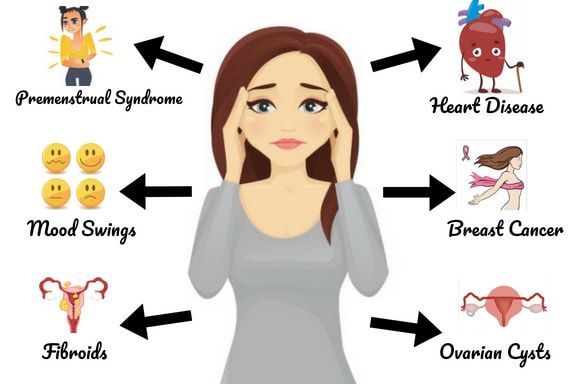
Are you having mood swings, trouble sleeping, or have gained weight? Chances are that you have a hormone imbalance. Hormone imbalance occurs when there is too much or too little of a hormone. Your hormones are important for regulating many different processes in the body such as appetite and metabolism, sleep cycles, reproductive cycles, and sexual function, body temperature, and mood. Levels of hormones keep fluctuating, so here are signs of hormonal imbalance that you need to look for:
- Skin and hair problems

If you have tried everything and are still suffering from acne issues, then it might be because of decreased levels of estrogen and a malfunctioning thyroid gland can lead to thinning hair and excessive hair fall. So if you have such issues you must get yourself tested.
- Sleep-related issues
You might experience disturbed sleep patterns due to various hormonal imbalances. Cortisol and Melatonin are two key hormones that control your sleep. Stress increases the production of cortisol, therefore reducing melatonin. Fluctuation in these hormones can lead to imbalance.
- Mood swings

Hormonal imbalances can lead to frequent mood swings and irritability. Most women are affected by fluctuating estrogen levels due to PMS. If you think you are having a lot of mood swings without any visible reason then you must get yourself checked.
- Unexplained weight gain
A number of hormone-related issues can cause weight gain including underactive thyroid, PCOS, and menopause.
- Headaches

Constant headaches are a common symptom of hormonal imbalance. Increased levels of estrogen cause migraines so visit a gynecologist if you suffer from menstrual migraines.
Unexplained weight gain
If you are experiencing unexplained weight gain, with no change in diet or exercise levels, you may wish to consult an expert in women’s health to check for conditions such as thyroid problems or ovarian cysts.
Skin problems
Chronic adult acne can be a sign of low levels of estrogen and progesterone and high levels of androgen hormones and can also indicate polycystic ovary syndrome.